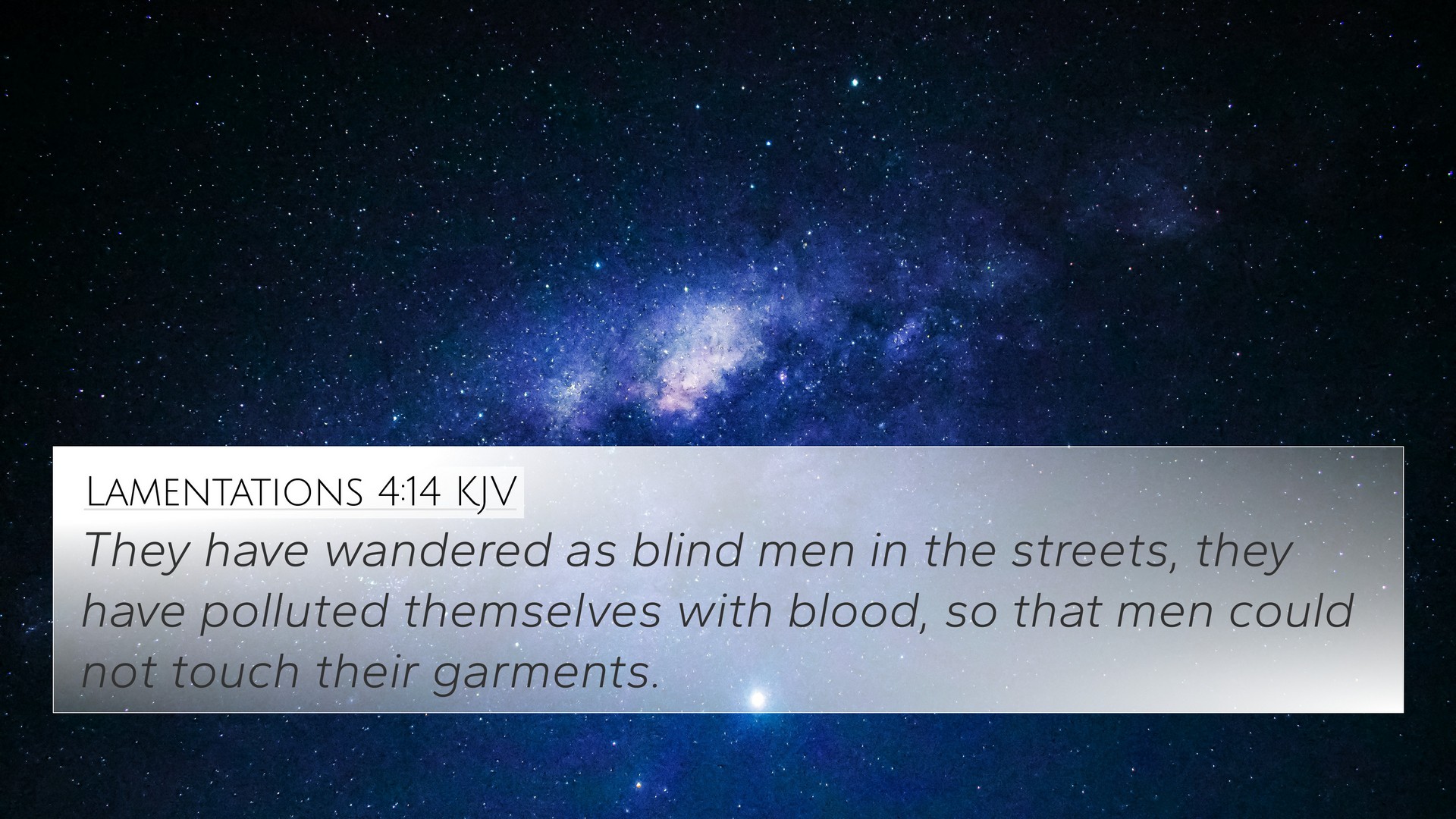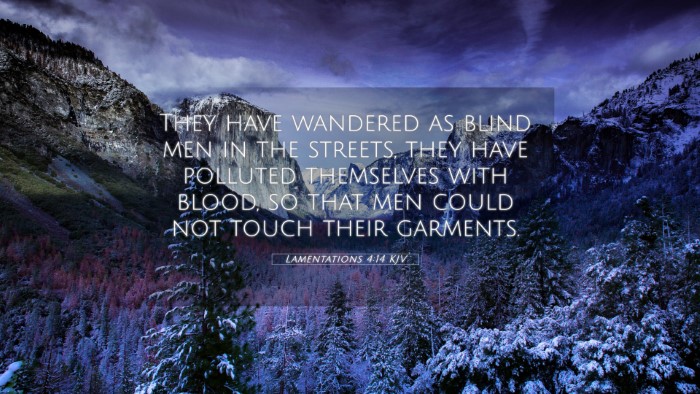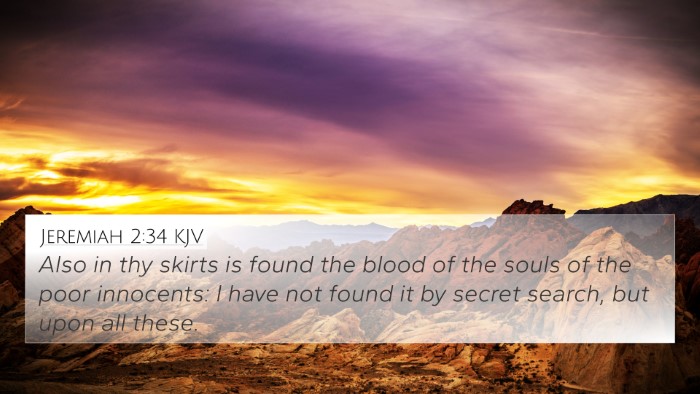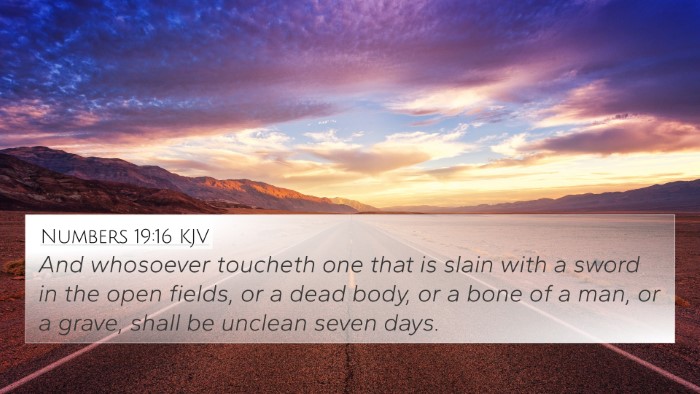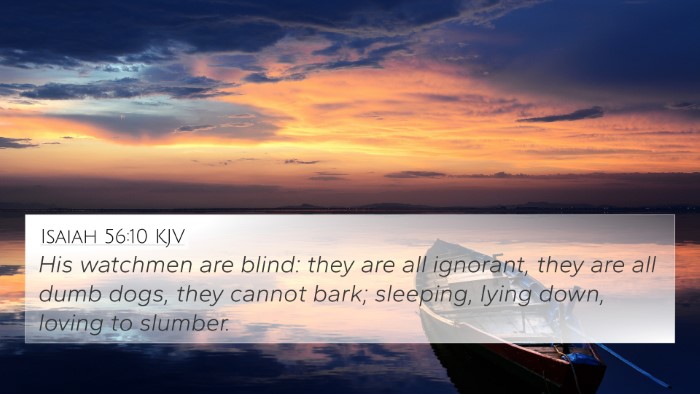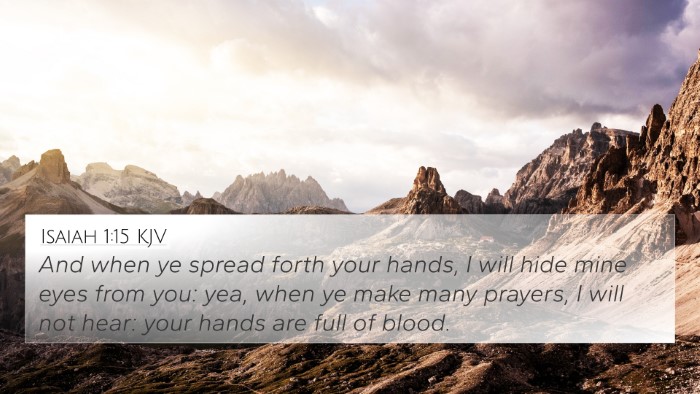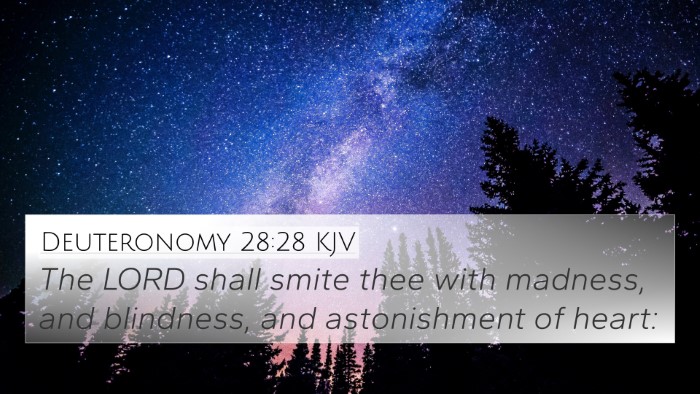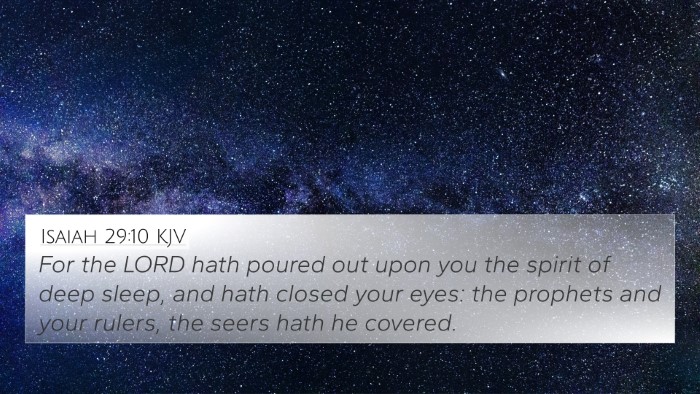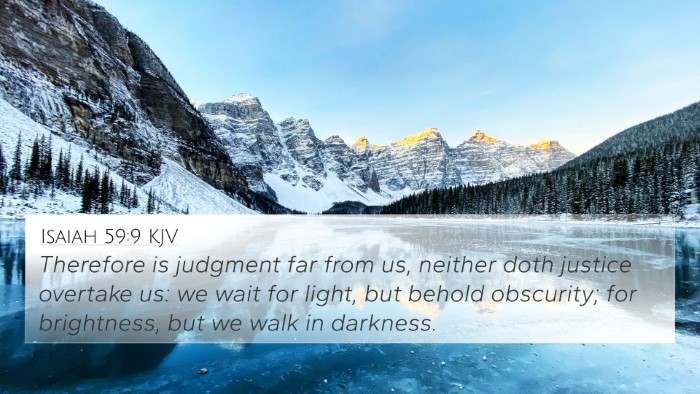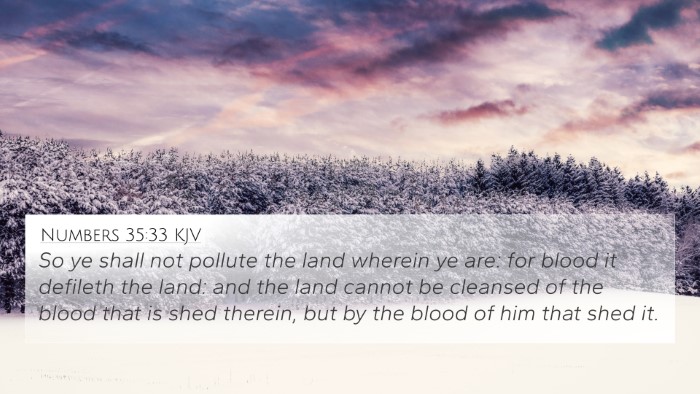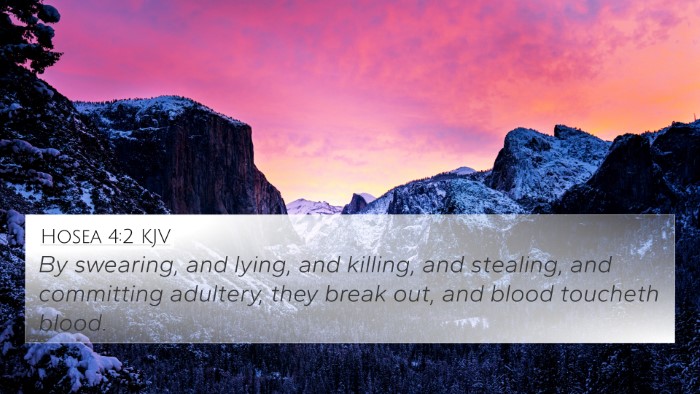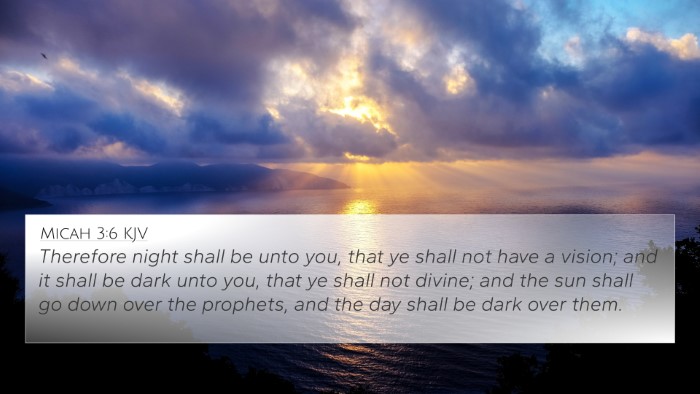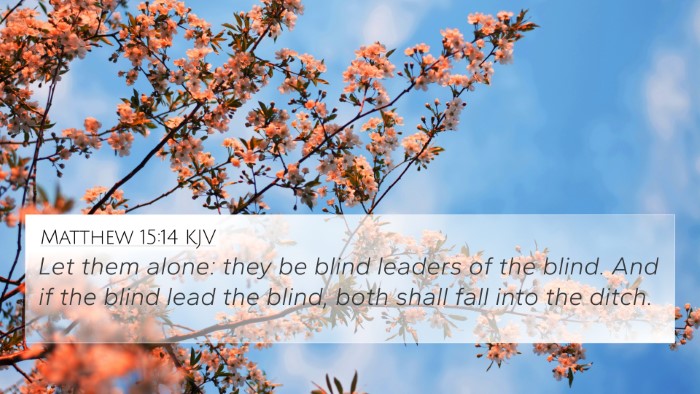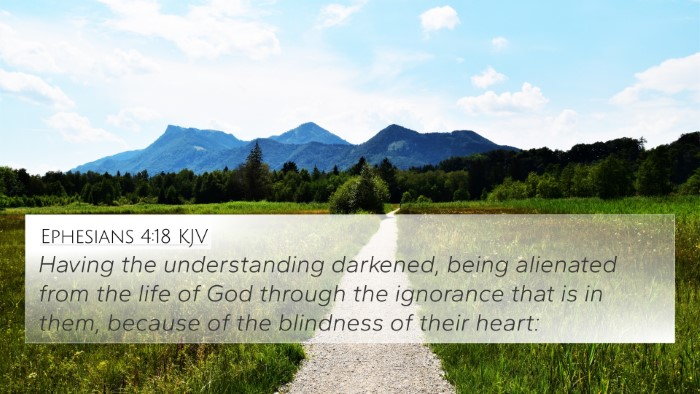Lamentations 4:14 - Summary and Interpretation
Lamentations 4:14 states: “They wandered as blind men in the streets, they have polluted themselves with blood, so that men could not touch their garments.” This verse speaks to the dire spiritual condition of the people of Israel as they suffered in the wake of their rebellion and sin.
Contextual Understanding
The book of Lamentations, traditionally attributed to the prophet Jeremiah, is a poignant reflection on the destruction of Jerusalem and the ensuing suffering of its inhabitants. Chapter 4 specifically highlights the misery and degradation experienced by the people, penetrating deeper into the emotional and spiritual despair they faced as a result of their disobedience to God.
Insights from Public Domain Commentaries
Matthew Henry's Commentary
Matthew Henry elaborates on the imagery of the verse, emphasizing the "blindness" that symbolizes spiritual ignorance and moral confusion among the people. He points out how their sins have rendered them unable to recognize their own plight. Their “pollution” is both literal and metaphorical, reflecting a community overwhelmed by guilt and unable to find redemption.
Albert Barnes' Notes on the Bible
Barnes highlights the consequences of sin, indicating that the people have become outcasts due to their transgressions. He notes that the phrase "they have polluted themselves with blood" suggests both the violence and the guilt stemming from their actions, illustrating the idea that sin leads to a collective shame that ostracizes one from the community.
Adam Clarke's Commentary
Adam Clarke provides further context by discussing the conditions in which the people found themselves. He mentions the literal wandering of the blind, suggesting that those who were responsible for guidance have lost their way. Clarke also references the ceremonial implications of blood pollution, connecting it to Levitical laws about purity and the consequences of sin in the sight of God.
Thematic Connections and Cross-References
This verse connects thematically to numerous other passages within the Bible, emphasizing the consequences of sin and spiritual blindness. Below are some significant cross-references:
- Isaiah 59:10: "We grope for the wall like the blind, and we grope as if we had no eyes..." - This verse similarly depicts a state of moral and spiritual blindness.
- Psalm 119:155: "Salvation is far from the wicked, for they do not seek your statutes." - Resonates with the idea that sin separates individuals from salvation.
- Jeremiah 2:13: "For my people have committed two evils: they have forsaken me, the fountain of living waters, and hewed them out cisterns..." - Reflects the abandonment of God, leading to spiritual dryness.
- Matthew 15:14: "Let them alone: they are blind leaders of the blind..." - A New Testament reflection on spiritual leaders who fail to guide properly.
- Romans 1:21: "Because that when they knew God, they glorified him not as God, neither were thankful..." - This illustrates the consequences of turning away from God.
- Hebrews 9:22: "And almost all things are by the law purged with blood; and without shedding of blood is no remission." - This verse connects the theme of blood's significance in purification.
- Ephesians 5:14: "Awake, thou that sleepest, and arise from the dead, and Christ shall give thee light." - A call from darkness to light, resonating with the plea for awakening from spiritual blindness.
- 2 Corinthians 4:4: "In whom the god of this world hath blinded the minds of them which believe not..." - Addresses the blindness of those who are not receptive to God.
- 1 John 1:7: "But if we walk in the light, as he is in the light, we have fellowship one with another..." - Highlights the importance of walking in spiritual clarity and fellowship.
- Isaiah 32:3: "And the eyes of them that see shall not be dim, and the ears of them that hear shall hearken." - A promise of restoration and clarity for those who seek God.
Conclusion
The message of Lamentations 4:14 serves as a profound reminder of the adverse effects of sin and the importance of spiritual awareness. Through the insights offered in various public domain commentaries, we can gain a deeper understanding of the implications of the verse and its connections to the broader narrative of the Scriptures. Cross-referencing with other Bible verses enriches our study, providing a comprehensive view that can augment personal reflection, sermon preparation, or academic pursuit.
Using Cross-References for Deeper Understanding
For those looking to explore more about how to find cross-references in the Bible, employing tools like a Bible concordance or a Bible cross-reference guide can be invaluable. Understanding cross-referencing Bible study methods not only enhances personal Bible study but also fosters a greater appreciation for the interconnectedness of Biblical texts.
